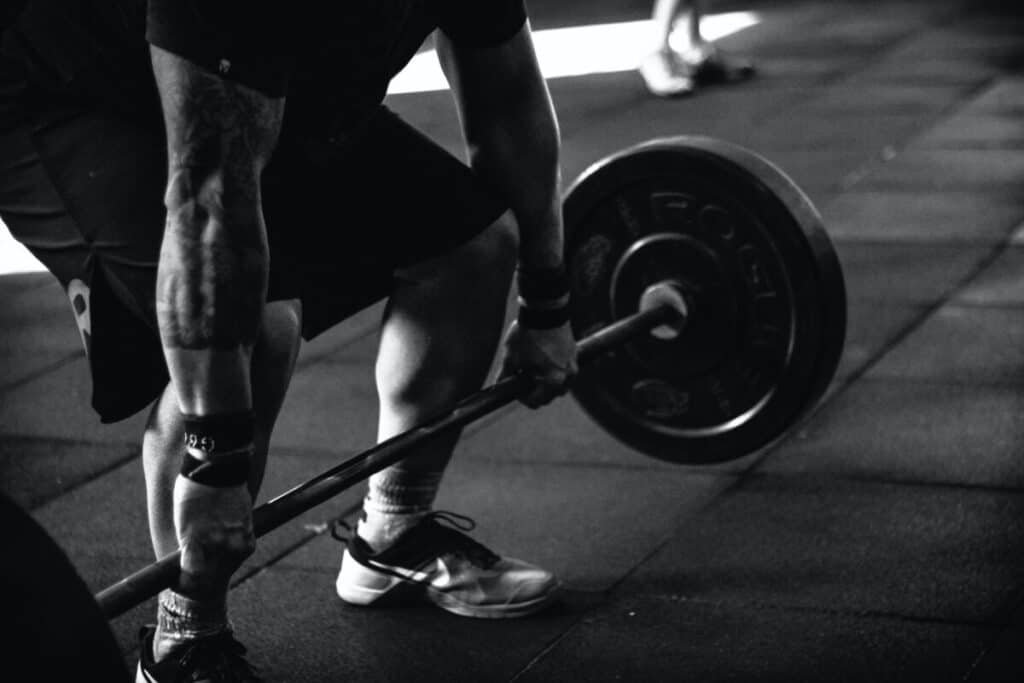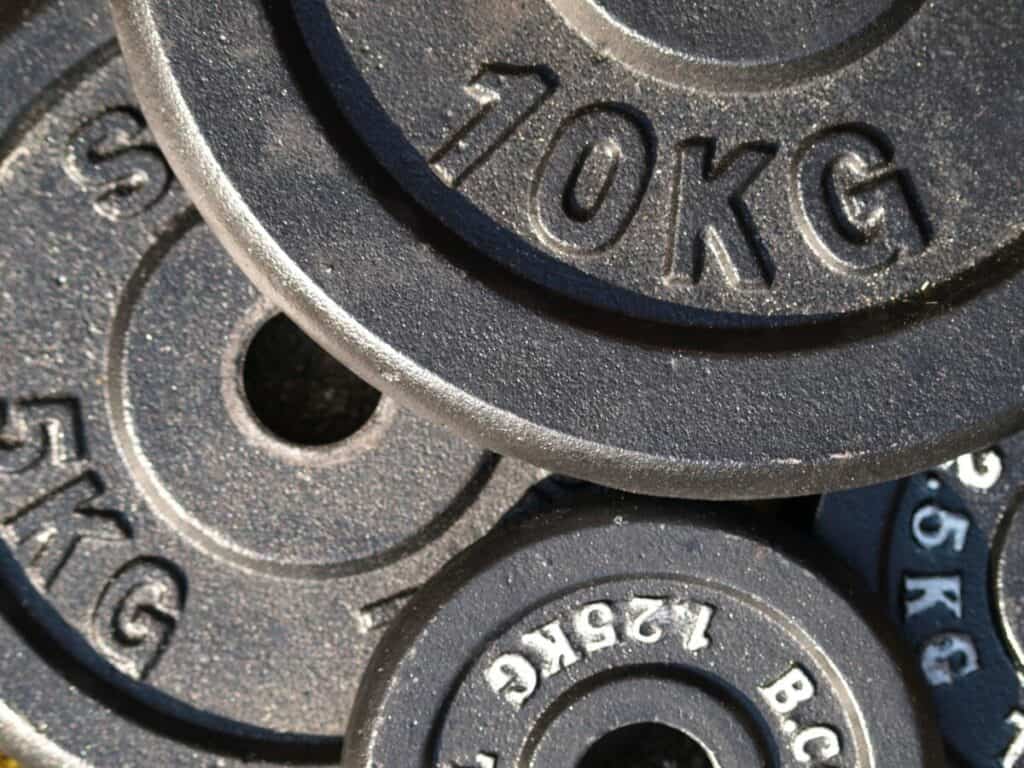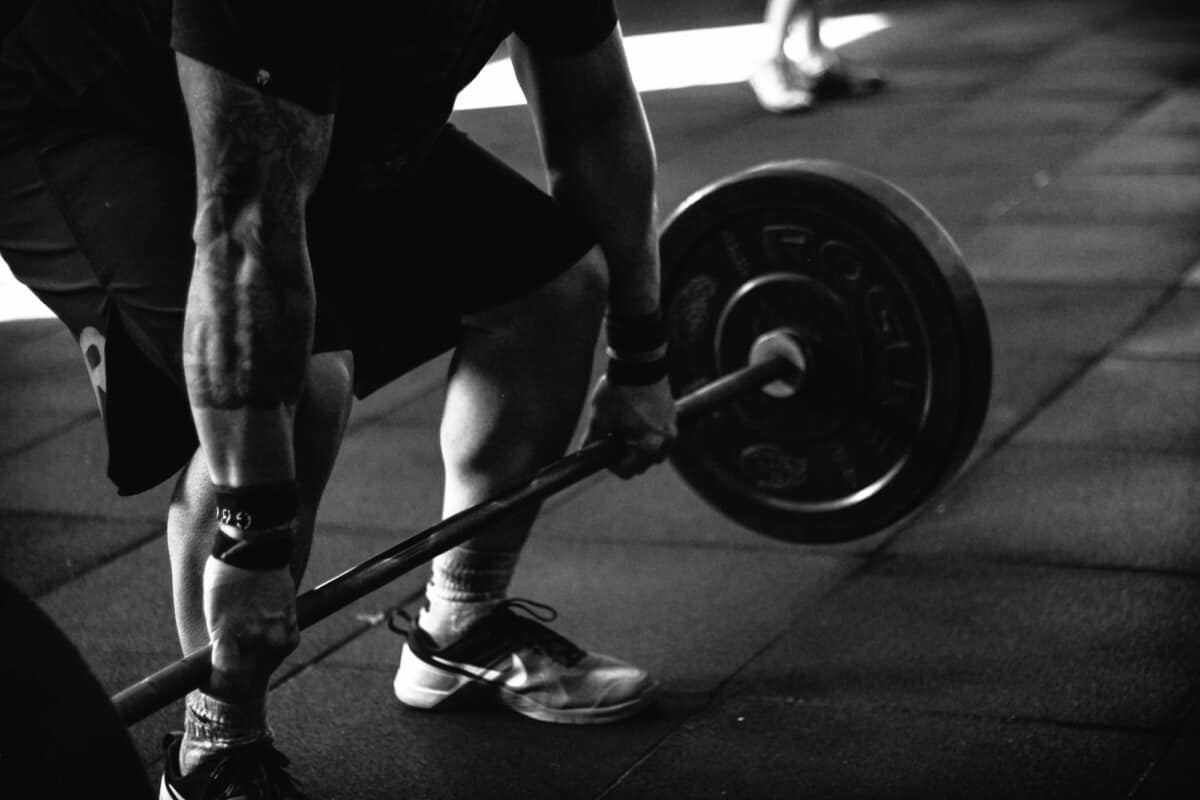[toc]
Most trainers recommend that you work out first thing in the morning before taking breakfast to help with weight loss. Chances are, you will probably burn more fat. Nonetheless, you shouldn’t focus entirely on weight loss as a weightlifter.
Remember, you need enough energy due to the workout’s intensity to stretch the muscles, promote growth, and burn fat during the rebuilding process. The following piece covers the benefits and risks of lifting on an empty stomach. It also includes suggestions on what to eat before and after the session. Keep reading to gain more insight.

Lifting On An Empty Stomach
Note that your body will require enough energy to work out; hence, weightlifting on an empty stomach isn’t a good idea. While you will burn a little more fat, you risk burning your muscle tissues too. In a fasted state, your body has already metabolized what you consumed from your last meal. As you perform these vigorous physical actions, your body breaks down the stored glycogen in your body into carbohydrates. If your reserves run out, it breaks down the excess stored fats to keep you going, and as a result, you lose weight faster.
However, it’s also worth noting that muscle building and weight loss both happens outside the gym. Your training becomes a success when you consume fewer calories than you what you burn. After working out in a starved state, your body begins to think that you need to store more fat from your next meal. If you consume food worth two meals to compensate for the missed one, it counteracts the fat-burning benefits.
Furthermore, when your body exhausts the fat reserves, it begins to obtain energy by breaking down muscle proteins. Soon you will find it challenging to regain your lost mass. As you increase your workout’s intensity to recuperate, you begin to feel tired since you don’t have the strength to push further. You may even pass out in extreme cases.
Working out on an empty stomach makes you feel lighter and more alert, but it would be wise to grab a pre-workout snack to avoid depriving your body of necessary energy. Nonetheless, don’t overeat to prevent stomach upsets.
Should I Eat Before Or After Gym?
If your main aim is to shed some fat and build muscles, eat a high carb, protein, and low-fat meal three to four hours before the workout session. The carbs will improve your endurance levels and intensity. Further, proteins help prevent extreme muscle damage for a faster recovery.
However, watch the portion size to ensure that you don’t overdo it. It may lead to nausea or even vomiting. When you eat a few hours before a workout, chances are, you will still have a high concentration of the ingested nutrients after the training. They will aid you in recovery.
On the other hand, for post-workout, consume more proteins an hour or two after weightlifting to rebuild the muscles. Also, carbs replenish glycogen stores. Don’t forget to take fluids to prevent dehydration.
You must eat something very soon after your session if you exercised on an empty stomach. Your body has already used up all the stored energies, and you have limited nutrients for recovery. Although you can make it through short and low-intensity workout sessions without food, you are unlikely to manage rigorous exercises without a nutritional boost.

Is Weightlifting In The Morning Bad?
People have different preferences when it comes to selecting the best workout time. If the morning is the most convenient time to lift, then go ahead and do it. Still, the timing may affect the effectiveness of your workout.
The anabolic and catabolic hormones in your body significantly affect biorhythm. The former helps repair and build tissues while the latter causes tissue breakdown. Catabolic hormone levels tend to rise higher in the morning, while anabolic increases during the day. Therefore for a lifting session, it would be wise to do it later in the day. Nevertheless, eating before your workout will help shift the hormones from catabolism to anabolism.
Moreover, in the morning, your glucose level tends to be lower, and working out at this state can lead to low blood sugar. As a result, you experience general body weakness, nausea, and you can even faint in an extreme case. It’s less likely to happen during the day since you should have consumed at least two meals. While exercising in the morning, don’t ignore pre-workout feeding.
Additionally, when you sleep, your joints and muscles become immobile, decreasing the synovial fluid production that lubricates them for free movement. When you exercise at this stage, you are more prone to injuries, especially in the morning’s first hours. To avoid this, do some warm-up exercises before proceeding to weight lifting.
You need to pick a routine that best aligns with your fitness goals. The evening is a less demanding time, and all you have to do is stay energized during the day. However, you can choose to employ various solutions to make your morning sessions as useful as required.
What Should You Not Eat After A Workout?
What you consume after exercising is equally important as the workout. Some foods will do more harm than good. Avoid sugary meals, candies, or drinks like soda. It would help if you had something that will give you enough energy to sustain you throughout the day for recovery. High sugar level slows down metabolism, which minimizes the fat-burning effects of a high-intensity workout.
While energy bars may seem like a convenient option, most of them may contain refined sugar and high fructose. Also, keep off from salty processed foods and oily fast foods. Remember that your goal is to reduce the amount of fat, and consuming such foods may raise cholesterol levels. Although raw vegetables are vital in your diet, avoid eating them just after a workout. They take up a large volume in your stomach, and you will fill up without getting the necessary nutrients.
Also, keep off chocolates and pastries since they aren’t reliable sources of nutrients. Besides, don’t drink sports drinks after workouts since they contain incredibly high sugar content, which can spike your blood sugar.
Can I Eat More If I Lift Weights?
After lifting weights, you will feel hungry immediately you leave the gym. It’s normal for your body to crave more. Besides, to build muscles, you must eat enough food to make up for the burnt calories. Though you require more calories, you need to be very strategic in your feeding behavior.
Note that your caloric intake will vary based on your sex, age, and size. Men naturally consume more food than women. Eat a nutrient-dense diet but mainly focus on protein consumption. Around 0.81 grams of protein should be enough per every kilogram of body mass for a sedentary individual. Meaning that if you weigh around 68kg, you should consume 55.08 grams of protein every day. For an intensive lifter, 1.2 to 1.7 grams of protein per kilogram of mass is enough.
Additionally, don’t overlook other macronutrients. It will help to take enough carbohydrates to fuel you through the tough workouts. Though you naturally feel like increasing your caloric intake while lifting weights, you shouldn’t overeat, especially if you want to lose fat. You can focus on decreasing your levels of calories slightly as you maintain your protein intake.
What Should I Eat Before Lifting?
Eating before working out keeps your blood sugar steady and provides you enough energy for strength training. You, therefore, need to mix good carbs, proteins, and healthy fats. Bananas contain natural sugars, potassium, and simple carbs that will help prevent muscle cramps.
Additionally, you can consider oatmeal, a complex carb that breakdown slowly to give you consistent energy throughout your session. A slice of whole-grain bread is also a good source of carbs, and you can combine it with a boiled egg for protein. Fruits like blueberries and cherries are great antioxidants that prevent cell damage, while avocados give you healthy fat.
Additionally, you can consider Greek yogurt that contains higher proteins, fewer carbs, and sodium. You can also grab a handful of dried fruits like apricots and figs that are easily digestible. Try out mixed nuts since they contain high-quality fat and proteins necessary to gain muscle mass. Other options include protein smoothie, chicken, veggies, brown rice, apples, and almonds.
From the extensive list, find out what best works for you. Further, remember to drink enough water or any other sodium-containing beverages to achieve fluid balance and avoid dehydration during exercise.
Still, pay attention to timing and ensure that you eat earlier enough to allow for digestion. For a snack, you can take it at least 45 minutes before the session.
Can I Run On An Empty Stomach?
Everyone is different, and some people feel best to run on an empty stomach while others require a meal. It would be best to eat something before embarking on a long-distance running to give your body the energy needed for safe and efficient exercise. However, you can still run on an empty stomach but stick to moderate running.
Most people who experience stomach upset if they have food before running prefer to skip the meal. However, you can still manage these symptoms by avoiding greasy food and eating two to three hours before your run. If you must run on an empty stomach, don’t do it for over sixty minutes, have a low-intensity run, and try to drink a glass of water before then.
On the other hand, running with no food can help boost your endurance. Your body learns how to use up stored glycogen, making it more energy-efficient. However, there isn’t any proven evidence showing that this could translate to better performance.
If you don’t eat before running, your body will keep craving for food, you feel extra hungry, and you are more likely to overeat to make up for the depleted energy. Long fasted running could also deplete your muscle mass and glycogen reserves. As a result, it slows recovery slower and affects your extensive workout goals.
Is It OK To Drink Coffee Before Running?
It’s safe to enjoy a cup of coffee before heading out for a run only if you don’t experience any issues. Beware that some people may face discomfort, and you need to evaluate your body first.
Caffeine is a great pre-workout supplement that keeps you alert to boost your endurance levels and performance. Besides, it improves your mood, cognitive function, and the desire to run harder. It makes your body use up fat for fuel instead of the stored glycogen, thereby boosting your stamina. It also helps in releasing the stored calcium. As a result, you may notice an increase in speed, especially for middle and long-distance runs. You can again run for a more extended period without feeling exhausted.
However, coffee may cause some detrimental effects, especially if you aren’t used to it. You will begin to feel a sensation to urinate more, that is problematic, especially if you run in areas without washrooms.
However, it mostly affects new users, but with time, this effect decreases.
Additionally, some people may experience gastrointestinal problems, including heartburn and stomach pains. It also has a laxative potential causing diarrhea and other bowel issues to some individuals. Others may experience jitters or headaches. Generally, consuming coffee before running can make your session more or less comfortable.
Conclusion
Although several research pieces support working out on an empty stomach, it doesn’t necessarily apply in all situations. Some people use this method to lose weight, but after some time, your body adjusts to using fat reserves often and may begin to store more fat.
As a weightlifter, you will burn all the energy quickly, which decreases your stamina. Consequently, it lowers your blood sugar levels; you become weak, shaky, and unproductive. Nonetheless, you need to ensure that you consume a balanced diet at the right quantities and time for improved performance. Hopefully, the above tips will guide you through.


Leave a Reply